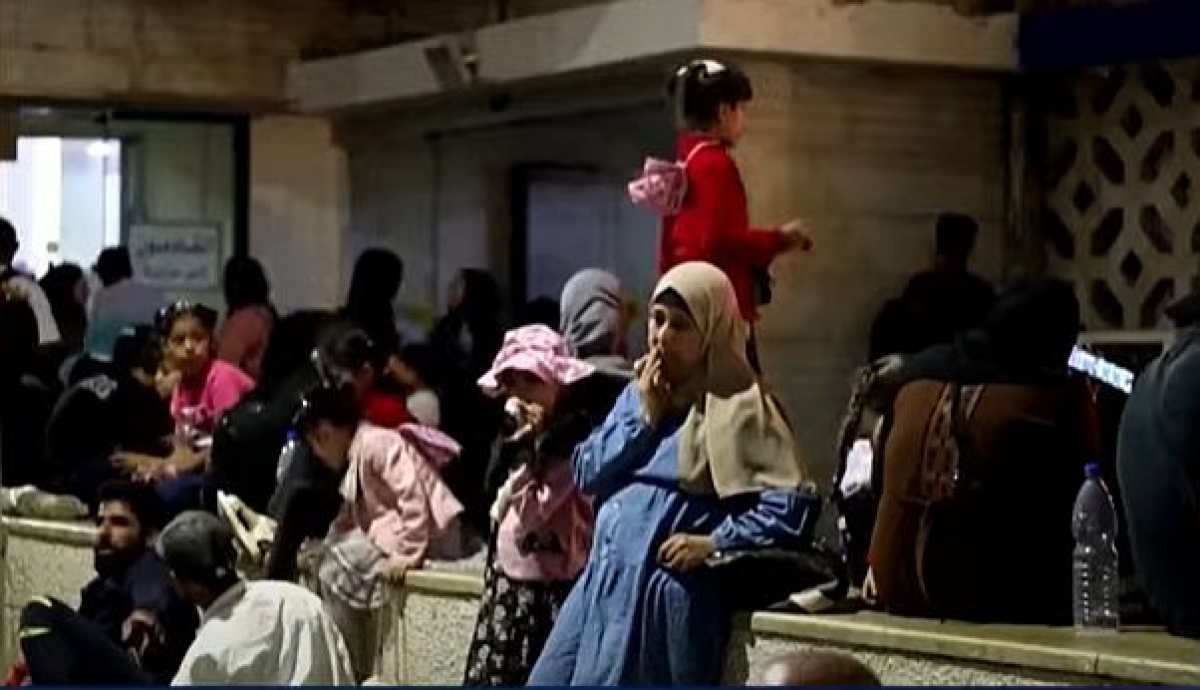Die Libanesen zahlen den Preis für einen Krieg, den die Hizbollah begonnen hat

IDPs aus dem Südlibanon, Bildquelle: Youtube
Mehrere hunderttausende Menschen aus dem Südlibanon sind inzwischen zu Binnenvetriebenen (IDPs) geworden und versuchen irgendwo in Beirut oder dem Norden des Landes Unterschlupf zu finden. Hilfe bekommen sie kaum, denn der Libanon ist ein de facto failed state, in dem sehr wenig nur noch funktioniert.
Aus einem Bericht der emiratischen Zeitung The National aus Beirut, in dem Libanesen zu Wort kommen, die recht deutlich der Hizbollah die Schuld an der jüngsten Eskalation des Krieges geben.
“I remember Albert Einstein's quote saying 'what counts the most is what cannot be counted.' The most terrible price has been paid by the victims,” said Karim Bitar, a professor of International Relations at Saint Joseph University in Beirut.
“What is also difficult to count and will be very important in the next few years is the psychological trauma that has been endured by millions of Lebanese,” he added.
In Beirut's Martyr's Square, dozens of displaced families camp out in the open while cars belonging to people who fled Israel's attacks jam the roads.
The displacement is the result of a year of war between Hezbollah and Israel – a war “Hezbollah is responsible for dragging Lebanon into”, according to Khalil Helou, a retired Lebanese army general and a lecturing professor in geopolitics.
Hezbollah has engaged Israel in a cross-border conflict in support of its ally Hamas in the Gaza Strip since October 8, 2023 – the day after Hamas infiltrated Israel, setting off a series of events that set the region aflame.
Hezbollah always insisted it did not want a full-on war, but was ready for it if it was imposed – something that came to fruition last month. (...)
The government has largely been a helpless bystander while the Lebanese Army has stayed away. (...)
Meanwhile, thousands of displaced people throughout Lebanon are still sleeping in streets and orchards, under shop awnings, and in abandoned, decrepit homes.
They are the unlucky thousands – of some 1.2 million people displaced by the Israeli air assault.
But perhaps they’re lucky to be alive. The Israeli assault has wiped out entire families, targeting different villages each day. Since Israel escalated its campaign on Hezbollah and Lebanon on September 16, more than 1,401 people have been killed. According to the UN, about 400,000 children have been displaced. (...)
“It's obvious the immediate damage that the war has brought to Lebanon in terms of destroying things,” said David Wood, senior Lebanon analyst at Crisis Group.
“There's also this potential for domestic tensions to be inflamed, which is something that we are really worried about. That's a really serious issue and depending on how the war goes, it's likely to gather the wrong kind of momentum.”
There's also the cost of rebuilding. When Israel and Hezbollah last fought an all-out war in 2006, Lebanon could count on an array of powerful international friends to help rebuild. But many of them, chiefly the Gulf states, have significantly reduced their engagement – in large part because of Hezbollah.
“Lebanon has lost a lot of its friends in the international community. Its elites, through the complete pursuit of self-interest and wastefulness, have made any potential donors very reluctant to give money to the country,” said Mr Wood.
“Even in a best-case scenario if there was a quick resolution to the conflict, I struggle to imagine that reconstruction would be anything other than an incredibly painful and incomplete recovery.”
The country had already been entrenched in one of the worst economic crises in modern times. Efforts to correct the financial system and enact economic reforms were already dragging at a snail's pace – and the war has hardly helped matters.
Lebanon was hardly in the ideal situation before October 2023 and politicians and diplomats had warned that the country was unable to handle the impact that a wider war would inflict.
“Economic cost, human cost, cost in terms of mental health for an entire population and political cost in the sense that today Lebanon's very existence is jeapordised,” explained Prof Bitar.
“There is a serious risk of civil strife, of seeing Lebanese unity and national unity put to the test.”